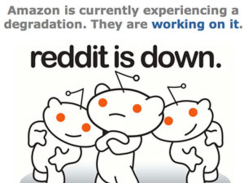
I call it a pissing match because Asay and Moody don't really disagree. Moody is saying it would be in Amazon's best interest to contribute more to the projects it benefits from. Asay responds that Amazon will decide when that happens.

On the merits, they're both right. Amazon should contribute more. Amazon would benefit from contributing more. But Amazon doesn't have to contribute more. Amazon may continue cutting off its nose to spite its face.
Amazon entrepreneur Jeff Bezos rose to prominence in the 1990s, when just about everything was proprietary. Despite the fact he uses open source tools, he still sees the world through that prism. Glyn says that's his problem, Matt says that's his business.
But let's look at some facts. Amazon is becoming the iPhone of the Cloud. Its AWS created and still defines the cloud space, but it is losing share rapidly, to competitors who collaborate using open source (Rackspace, through OpenStack) or contribute code readily to open source communities (Google). Meanwhile, AWS has suffered a five-day outage which hurt its reputation, and to which it responded poorly, from a marketing perspective.

Which strategy is more likely to solve the problem? The third, obviously. Glyn is right.
Matt's correct. You can be a douche and still be open source. But the larger point is more important. The more you give to open source, the more you get back. It's a very old Internet lesson – if you want to get, first give.
The fact that Amazon doesn't understand this lesson is sad, and stupid. Defending stupid is never attractive.










